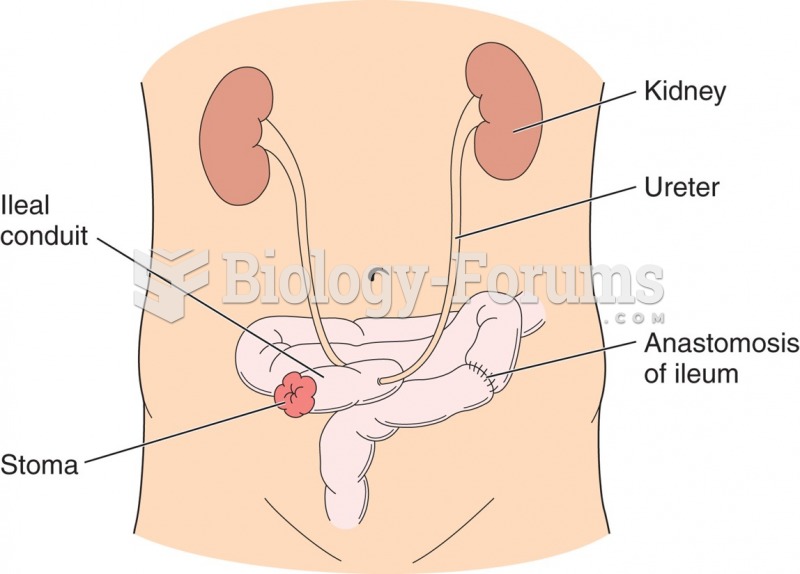|
|
|
ACTH levels are normally highest in the early morning (between 6 and 8 A.M.) and lowest in the evening (between 6 and 11 P.M.). Therefore, a doctor who suspects abnormal levels looks for low ACTH in the morning and high ACTH in the evening.
Illness; diuretics; laxative abuse; hot weather; exercise; sweating; caffeine; alcoholic beverages; starvation diets; inadequate carbohydrate consumption; and diets high in protein, salt, or fiber can cause people to become dehydrated.
The average human gut is home to perhaps 500 to 1,000 different species of bacteria.
Computer programs are available that crosscheck a new drug's possible trade name with all other trade names currently available. These programs detect dangerous similarities between names and alert the manufacturer of the drug.
Most strokes are caused when blood clots move to a blood vessel in the brain and block blood flow to that area. Thrombolytic therapy can be used to dissolve the clot quickly. If given within 3 hours of the first stroke symptoms, this therapy can help limit stroke damage and disability.
 Female individuals of the banded Uromastyx, Uromastyx flavofasciata, are different colours. Most nat
Female individuals of the banded Uromastyx, Uromastyx flavofasciata, are different colours. Most nat
 Martin Van Buren, sitting uncomfortably for this engraving, would eventually ascend to the presidenc
Martin Van Buren, sitting uncomfortably for this engraving, would eventually ascend to the presidenc




